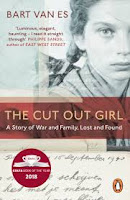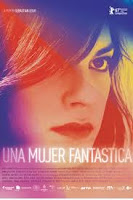From early on Zionism had two different aspects, and this is still important now. In Palestine it acted as a movement and an ideology of colonists, seeking to take over a territory and dominate the local inhabitants. But in Europe, where Jews were an oppressed minority, Zionism was a movement of nationalism (albeit an odd one) for an oppressed people, offering solidarity, cultural renewal, and self-help organisations. Now in Israel (and Palestine) Zionism acts as an ideology and set of institutions for Jewish supremacy - many Israelis say that Israel must be the state of the Jewish people of the world, not a state for all its citizens. But for Jews around the world, Zionism still means Jewish cultural identity, the national pride of a minority that’s not always oppressed but is often fearful.
For non-Jews, including anti-racists, it’s not always apparent how much Jewish identity has been subsumed into Zionism. Radical anti-Zionist Jews who have broken with the mainstream Jewish community, and its identification with Zionism and Israel, have found their own version of Jewish identity. But for most Jews in Britain identification with Israel is a very important aspect of their Jewish identity - even if they are privately unhappy or very unhappy about the government and some aspects of Israeli society. The idea of Israel as a refuge for future Jewish refugees still has a very strong hold. It’s bound up with the memory of all the Jews who didn’t manage to escape the Holocaust, and the memory of how migration to Palestine provided an exit route for those few who did escape or managed to survive the extermination.
I grew up Zionist. I went to a state-funded Jewish primary school that was run by a Zionist organisation. The Hebrew that I learned there was the Israeli kind - I didn’t even understand why older people pronounced Hebrew in a completely different way. The songs we sang were Israeli songs, in Hebrew. We celebrated Jewish holidays the way they did in Israel. There were maps of Israel and Israeli flags all over the school...I don’t think there was one British flag or map of Britain. Later on as a teenager I went to a Zionist youth movement, where we went camping, and got off with each other, and sung more Israeli songs and practiced living like a utopian community.
Eventually my politics took me away from most of this. I mainly look at Zionism through the eyes of its victims, although I can still connect with some of the emotional memories I have about Israel as a rescuer. I also know that some fascists and conspiracy-theorists use Zionist as a code-word for Jew, and sadly that some of my friends and comrades on the left can unconsciously slide into using antisemitic themes and imagery when they’re - rightly - calling attention to Israel’s crimes.
I’d like to persuade more British Jews to oppose the Israeli government and the Occupation, and to support equal rights for all citizens in Israel. I hope more people in Britain will stand in solidarity with the Palestinians, and will support their struggle against Israel. But I hope that it’s possible to do this in a way that doesn’t involve a frontal assault on the personal and cultural identity of Jewish people, and that means treating the issue of ‘Zionism’ with some nuance and sensitivity.
(Afternote: I wrote this as a comment on someone else's Facebook post, and then re-posted as stand-alone Facebook post of my own, and now I've put it here to give it a more permanent home. It was intended originally as a short response, and there are some aspects that deserve more substantiation or exploration. But it's here as it emerged, and I think I still stand by what's in it.)


















































